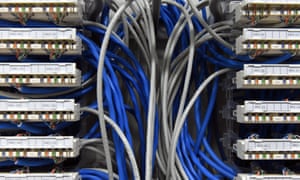Extract from The Guardian
NBN operator could be punished for lengthy repair times and missed appointments, party says
The operator of the national broadband network could be fined for lengthy repair times and missed appointments under a Labor proposal to establish a wholesale service guarantee.
It would allow consumers to be compensated if NBN Co failed to meet an agreed set of performance standards, and Labor says would end the practice of blame-shifting between the wholesaler and retail internet providers, who are subject to review by the telecommunications industry ombudsman.
Responsibility for both regulating those standards and managing consumer complaints would be given to the Australian competition and consumer commission (ACCC).
Appropriate standards and financial penalties would be determined in consultation with the ACCC, NBN, and other stakeholders, Labor said.
“NBNCo needs to lift their game on customer service and if they don’t - they’ll have to pay,” he said.
Shorten said NBN installers missed more than 80,000 appointments in 2017.
A report by the ombudsman in April found that complaints to about the NBN increased 200% in the second half of 2017 to 22,827 individual complaints, most of which concerned service quality and delayed connections.
This week the NBN confirmed that it had slowed down the rollout of the network in 2019 but said it still expected to meet its completion deadline of 2020.
“As already disclosed, the HFC [hybrid fibre coaxial] sales pause has had an impact on our activations profile,” NBN Co told the Australian Financial Review. “Our focus remains strongly on improving customer experience on the network including a smooth connection to the network.”
NBN chief executive Bill Morrow was criticised earlier this month for suggesting that online gaming was responsible for a significant increase in data consumption on its fixed wireless network, and suggested connections to “extreme users” could be throttled.
He later clarified that the problem might not be gamers, but that “there are super users out there consuming terabytes of data and the question is, ‘should we actually groom those down?’”
Data provided to the ABC by price comparison website WhistleOut showed that the average bandwidth taken up by streaming services like Netflix and Stan was 20 times higher than that used by the 10 most popular online games.
That coincides with the NBN’s own advice on online gaming, which says that “some of the biggest online games use very little data while you’re playing compared to streaming HD video or even high-fidelity audio.”

No comments:
Post a Comment